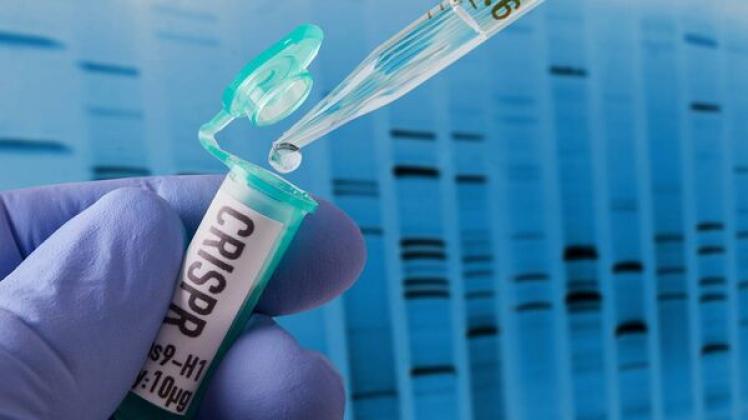Irlanda: Gene-edited blight-resistant potato breakthrough a "game-changer"
CRISPR/Cas technology makes the breeding of new, improved varieties faster and more precise.

Potato plants resistant to blight are one of the "game-changing" breakthroughs in Europe for gene editing, a new plant breeding technology.
The UK has already given the go-ahead for gene editing, and several other countries have adopted it or are considering the use of gene editing. They may soon be joined by the EU, with the European Commission expected to propose deregulation of certain gene editing techniques.
One of the exciting possibilities for farmers has been revealed after Dutch researcher Daniel Moñino-López successfully worked with CRISPR/Cas gene editing technology to breed potato crops in which pesticides to control late blight disease can be drastically reduced.
This is a major scientific breakthrough because potato is the third most important food crop in the world, after rice and wheat, in terms of human consumption. But the crop remains threatened by blight, a disease which causes between €3 billion and €10 globally of yield loss and management costs, each year.
Moñino-López, at Wageningen University & Research, successfully introduced resistance genes from wild relatives of potatoes into new modern high-yielding potato varieties. This would normally take decades to achieve with conventional crop breeding methods. But CRISPR/Cas technology makes the breeding of new, improved varieties faster and more precise.
It is of particular interest in crops (like potatoes) for which conventional breeding processes are particularly tedious and time-consuming and are outstripped by the occurrence of new strains of a pathogen such as Phytophthora infestans (the blight fungus), or by other environmental changes.
And this editing of genes that are native to crops already has a history of safe use. That should make it more acceptable to consumers than genetic modification (banned in Europe), which involves genetic material from one species inserted into another.
Progress against late blight is, of course, to be particularly welcomed in Ireland, because it is the disease that devastated potato crops here (and in mainland Europe) in the mid-19th century, leading to millions of deaths. In Ireland alone, around one million died from starvation, and another million were forced to emigrate. Thus blight shaped the history of Ireland and many countries in the Western world.
Now, this potato disease is kept at bay by spraying the crop with chemicals several times each year, adding economic and environmental costs to potato production.
Learn more
With the EU’s Farm to Fork Strategy proposed to reduce by 50% the use of chemical pesticides (such as blight spray) by 2030, Moñino-López’s breakthrough is timely. And it could help to sway the new debate over regulation of gene-edited crops in the EU, where a European Court of Justice decision in 2018 had lumped gene-edited crops in with genetically modified crops.
Five years later, gene editing looks like a good fit in a world where consumers want a reduction in chemical pesticides and synthetic fertilisers, even while a growing global population needs more and more food.
That is why many countries have already deregulated gene editing. The USA has been the frontrunner, with 169 applications for gene-edited products from 2011 to 2020. Successes include non-browning mushrooms, waxy maize, and potatoes with reduced black spot.
Gene editing can shorten the eight to 20-year conventional development of an improved crop to less than four years.
In the UK, the Genetic Technology (Precision Breeding) Act 2023 has been passed in Parliament, and techniques such as gene editing (initially for crops, and then for livestock) can be used as soon as appropriate food standards and welfare regulations are in place.
Many will support a similar path in the EU. However, a coalition of organisations, supported by some Green and socialist MEPs, have presented a petition signed by 420,000 EU citizens to the European Commission, urging it not to loosen rules on gene editing.
At member state level, Germany’s environment minister Steffi Lemke, a Green MP, is a staunch opponent of gene editing. Opposition from such an important member state could be important in the green editing debate.
Fuente: https://www.irishexaminer.com/farming/arid-41141023.html




